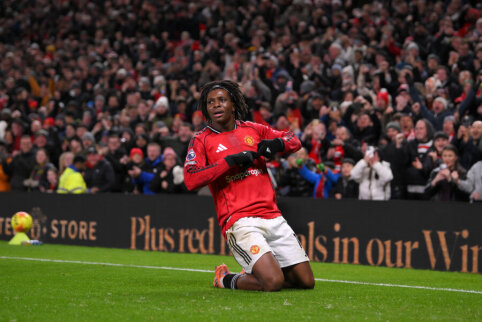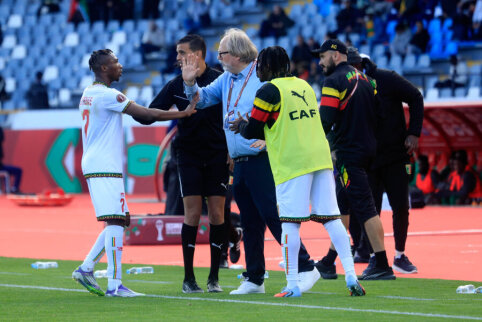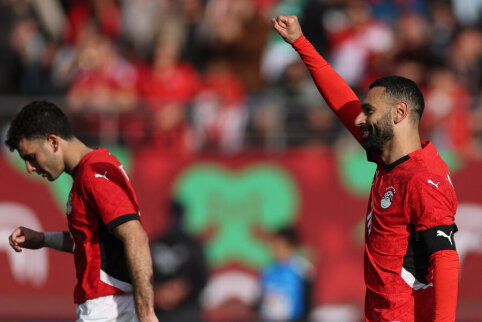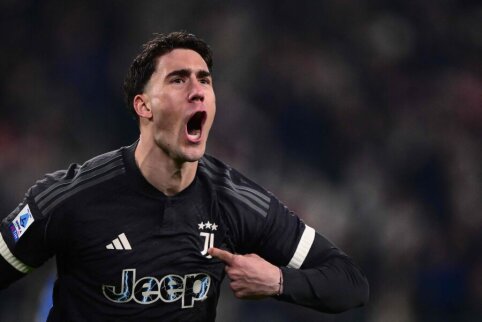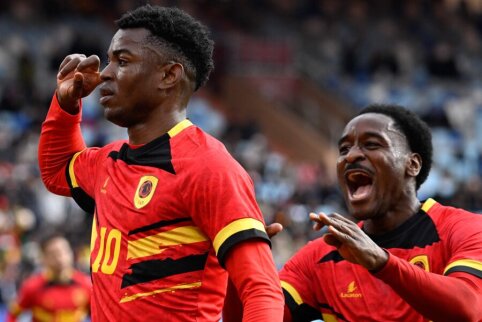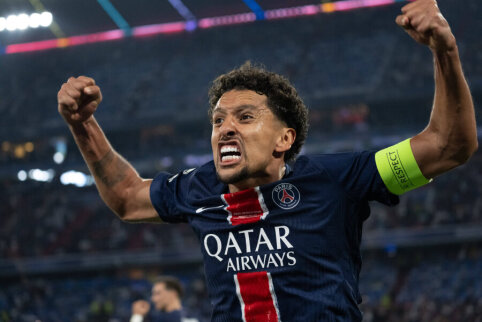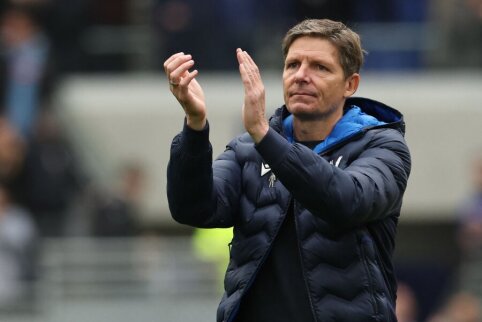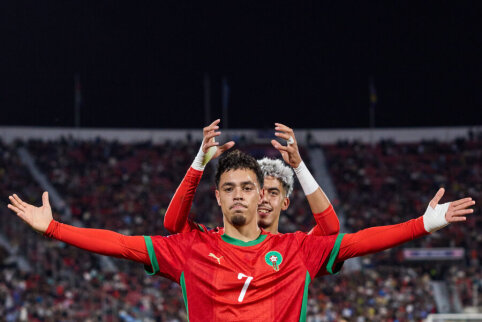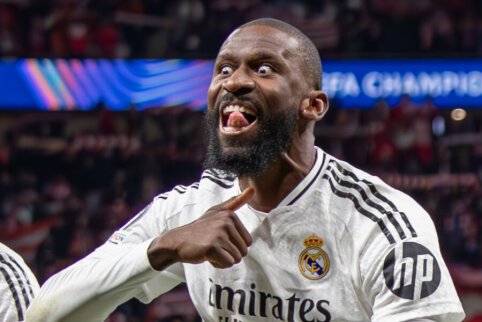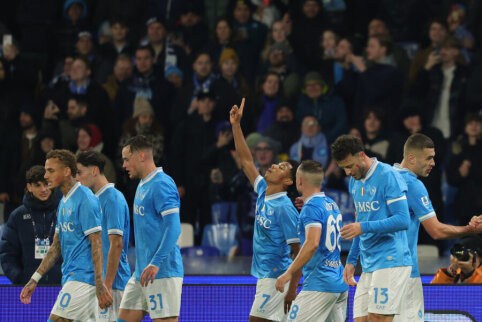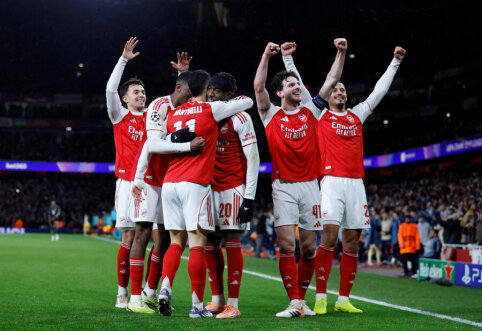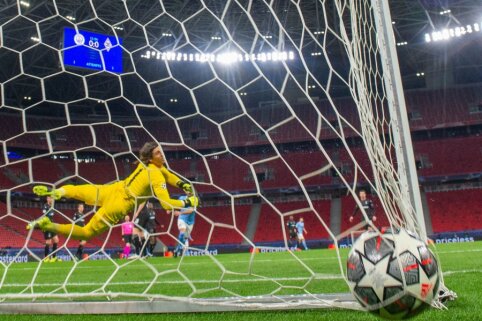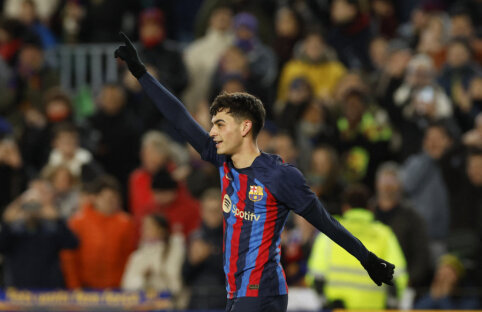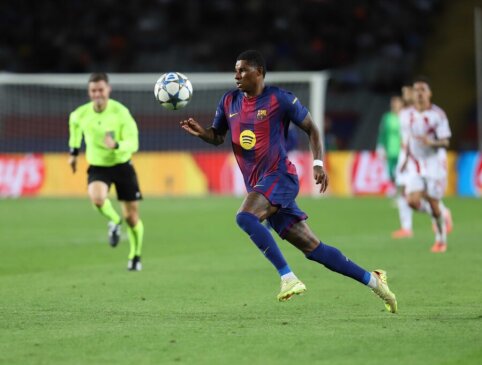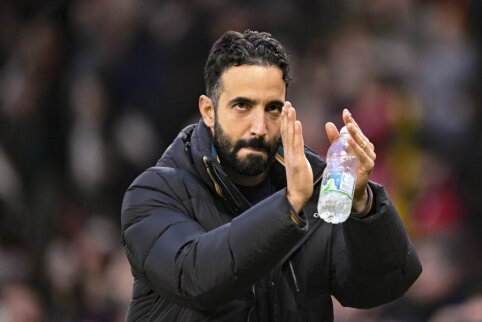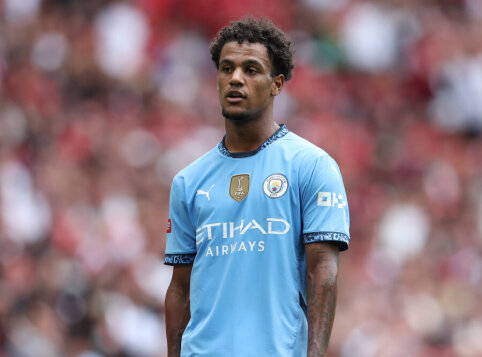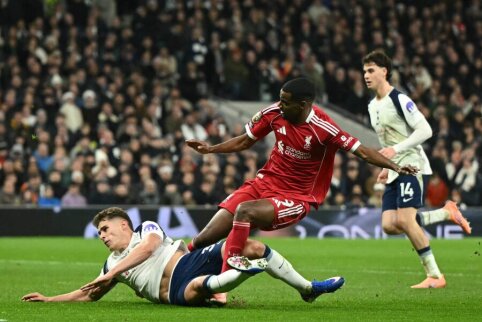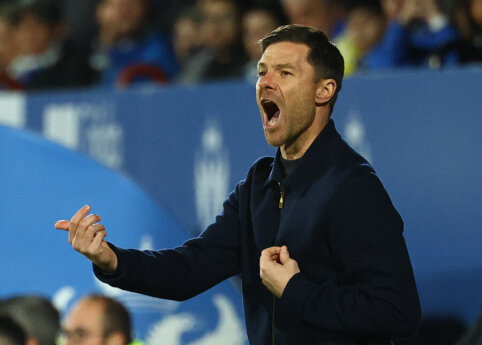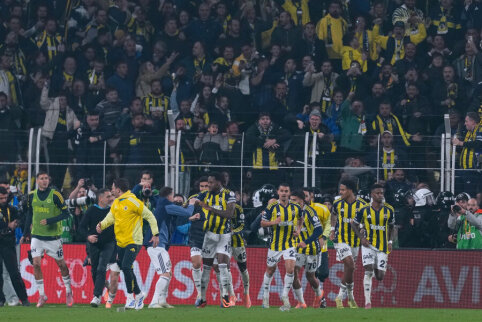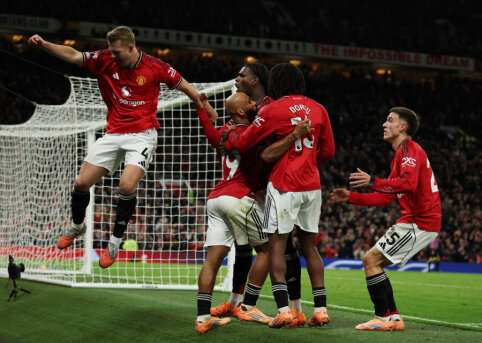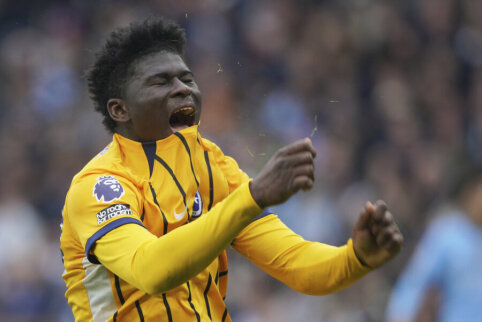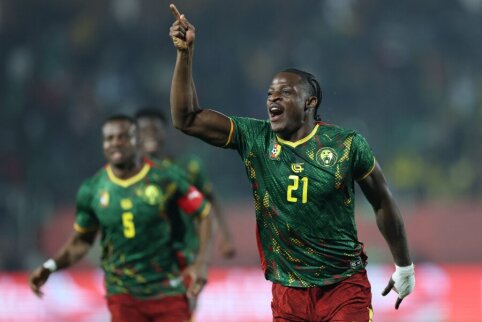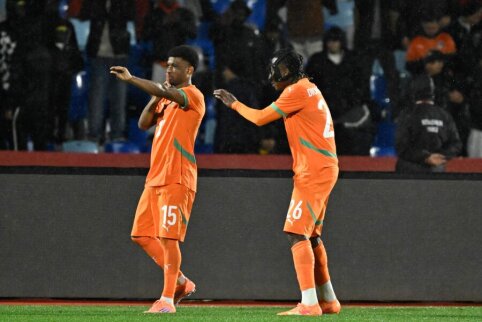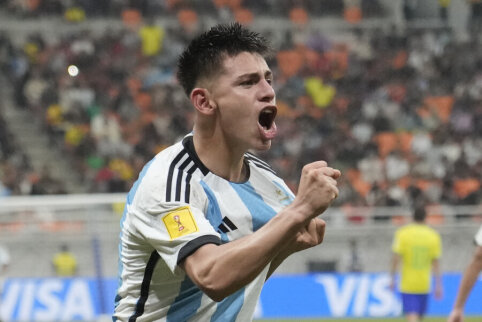 © EuroFootball.com
© EuroFootball.com
On January 26, 2007, in Düsseldorf (Germany), Frenchman Michel Platini was elected as the sixth UEFA president. The new leader of European football, who had served in these roles for 17 years, congratulated the Swede Lennart Johansson, shared the winner's speech, and began a new stage of his rich career full of new ideas.
UEFA president Michel Platini hopes to be as good and respected as he was as a footballer. This Frenchman's career was magnificent and trophy-rich; he had countless great moments in his career and became one of the greatest footballers of all time. Although M.Platini did not win the World Cup, it did not diminish his authority on the football field. Let's get acquainted with the colorful biography of the "10th number" of "Les Bleus" on his way to glory.
Michel Platini
Born on June 21, 1955, in Joeuf, France
Clubs
"AS Nancy" (1972 - 1979)
"Saint-Etienne" (1979 - 1982)
"Juventus" (1982 - 1987)
Achievements
Winner of the French Cup in 1978
French champion in 1981
Winner of the Italian Cup in 1983
Italian champion in 1984, 1986
Winner of the UEFA Cup Winners' Cup and UEFA Super Cup in 1984
Winner of the Champions League and Intercontinental Cup in 1985
European champion in 1984
European Footballer of the Year in 1983, 1984, 1985
World Footballer of the Year in 1984, 1985
Selected as one of the best footballers of all time in 2004
With excellent technical skills, "game reading," a fighting spirit, and unique penalty kicks and elegance, the career of the Frenchman began in his humble hometown of Joeuf. Unlike many starting footballers, Michel Platini trained not on training grounds but on the streets of the village, honing his ball skills. Michel's father, also a footballer and coach, Aldo Platini, instilled in his son the importance of precise passing and ball control.
"For me, the most important thing in football has always been to make the right pass at the right time. I was a classic playmaker," - Michel Platini would later say, reaffirming the importance of childhood lessons. In his childhood, he admired the game of "Ajax" and "Bayern". These styles intertwined in the game of the "number 10" himself - German rationalism and cold reason, and Dutch improvisation and attacking qualities in one.
At the age of eleven, Michel was called up to the local "AS Joeuf" children's team. The boy was quickly noticed at a tournament and by the age of 15 was already participating in the "Metz" youth team trials. However, the boy's plans were dashed by an injury. Upon his return to "Joeuf" in 1972, M.Platini received an invitation to join the "Nancy" reserve team.
"I started my career at the most famous club in the Lorraine region, "Nancy", then played for the most famous club in France, "St. Etienne", and ended my career at the most famous European club, "Juventus"," M.Platini once said.
Of course, Michel did not think of staying in the "Nancy" reserve team, as he scored three goals in his first few matches and found himself in the main team. However, the start of a professional footballer's career was not paved with roses. He missed most of the debut season, 1972-1973, due to a serious shin injury, and in 1973-1974 due to a leg fracture. "Nancy" dropped to a lower division. But upon his return, M.Platini scored 17 goals and helped the team return to the top league. Soon, the footballer caught the eye of the French Olympic team and in 1978, "Nancy" won its first trophies – the French Cup, and M.Platini received an invitation to the World Cup in Argentina two weeks later.
It was no coincidence. In the crucial match against Bulgaria for a place at the World Cup, M.Platini scored a goal, France won, after a 12-year hiatus made it to the World Cup, and the country's hero remained third in the 1977 best European footballer awards. Before the trip to distant Argentina, in a friendly match in Naples against Italy (2-2), M.Platini scored a firm penalty goal against Dino Zoff himself and made all of Europe talk about him.
In Argentina, France entered the so-called group of death. It was tough to compete with the championship favorites Argentina and the evolving Italian team, and after only defeating Hungary, the performance in the World Cup had to come to an end. However, M.Platini's account included a goal against the later world champion Argentina.
Nancy was unable to keep the rising star in its ranks, and the following season in this club was Platini's last. Despite another shin injury, he attracted interest from Inter Milan, PSG, and Saint-Etienne. The latter eventually succeeded, and M.Platini signed a three-year contract.
With the new team member "Saint-Etienne," Platini hoped to conquer Europe, but despite impressive victories against PSV (6-0) or Hamburger (5-0), the European trophies eluded them. Later in 1981 and 1982, two French Cup finals were lost to Bastia and PSG. Before the latter games, M.Platini signed a contract with the heavyweight European Turin "Juventus". A brilliant Platini goal from a penalty kick against the Dutch in 1981 led France to the 1982 World Cup in Spain.
Before that, there was an unsuccessful attempt to conquer Europe when the French failed to pass the qualifying barrier, having to acknowledge the then strong Czechoslovakia's superiority.
In Spain, the French started the championship with a defeat against England: 1-3. However, they later picked up the pace, crushing Kuwait, Northern Ireland, and playing evenly matched games against Czechoslovakia and Austria. In the semifinals, they faced West Germany (VFR). Platini called these games the most challenging of his career.
The Germans scored first, but Michel Platini equalized with a penalty kick. In the second half, tempers flared. In the eyes of football fans, the sight of the German goalkeeper Toni Schumacher knocking out the French captain Patrick Battiston and not being penalized stuck for a long time. Led by captain Platini, "Les Bleus" continued to fight. As extra time began, France led 3-1, but VFR equalized, won the penalty shootout, and reached the final, where they lost to Italy. Crushed by their defeat, the French lost to Poland in the match for third place.
Remembering those impressive games with VFR, Michel said, "I have never experienced such strong emotions in such a short time in my life. It takes your breath away. I couldn't find the right word to describe my emotions that night."
At Juventus, Platini formed a striking duo with the Pole Zbigniew Boniek. In his first season with Juve, they lost the UEFA Cup final to Hamburg, but won the Italian Cup and Supercup. In the following 1983-1984 season, Juventus triumphed in Serie A and won the UEFA Cup Winners' Cup. Platini became Italy's top scorer for two seasons and was voted the best in Europe.
In 1984, it was time for French triumph in Europe. "Les Bleus" triumphed at the Old Continent championship held in their country, with Michel Platini shining brightly. In 5 matches, he scored 9 goals. Perfect "hat-tricks" in matches against Belgium and Yugoslavia, where the goal was scored with both the left and right foot and head - numbers that speak for themselves. In the semifinals, after Platini's goal, France defeated Portugal after extra time and then beat Spain 2-0 in the final to become European champions.
In 1985, Michel triumphed with Juventus in the Champions League. In Brussels, after Platini's only goal from a penalty kick, "La Vecchia Signora" defeated Liverpool 1-0 and became the strongest club in Europe. However, there was little joy and grand celebration. Before the match, aggressive Liverpool fans attacked Juventus supporters, resulting in 39 deaths and 600 injuries due to the poor conditions of the Heysel Stadium walls. M.Platini remembers this incident with sadness: "That night, few cared about football. They brought the trophy to our dressing room, but there was no celebration."
At the end of 1985, Juventus also won the Intercontinental Cup, and Michel Platini was voted the best footballer in Europe for the third consecutive year and the best in the world for the second year in a row.
In 1986, another "scudetto." In view were the World Cup in Mexico and new goals.
"If the World Cup were held every year, between 1982 and 1986, France would have triumphed at least two or three times," he said at the end of his career, playing in Mexico while struggling with groin injuries and taking painkillers before each match.
Although France played well in Mexico, they stumbled in the semifinals against the same West Germany with a score of 0-2. And the victory of 4-2 in the bronze match against Belgium did not bring much consolation to many.
The French defensive line: Michel Platini, Alain Giresse, Jean Tigana, and Luis Fernandez, was dubbed the "Magic Quartet." According to many experts, France deserved to win the championship that year. On the way to that fateful semifinal, Italy and Brazil were defeated, and symbolically, in both matches, the "number 10" scored a goal. The match against Brazil, which, by the way, took place on Michel's 31st birthday, was deemed by Pele the best in a century.
After the 1986-1987 season, Michel Platini, plagued by constant injuries, decided to end his impressive career, despite being only 32 years old. The footballer decided to retire at the peak but continued to be the center of attention.
On November 1, 1988, he accepted a new challenge, becoming the coach of the French national team and replacing Henri Michel, who failed to lead the team to the 1988 European Championship. In the early stages of his coaching career, Platini failed to guide the team to the 1990 World Cup.
However, M.Platini quickly returned "Les Bleus" to the path of victory - he infused leadership into the national team's defense with Didier Deschamps, formed a cohesive attacking unit with Eric Cantona and Jean-Pierre Papin. France did not lose from April 1989 to February 1992 and won all eight qualifying matches for the European Championship. Unfortunately, the final tournament did not see them overcome the group barrier, and M.Platini voluntarily left the coach position. Nevertheless, the country loved their football legend. He was entrusted to light the Olympic flame at the Albertville Winter Olympics.
Later, M.Platini held many positions - he was the head of the organizing committee for the 1998 World Cup in France, the head of the FIFA Technical Development Committee, the vice president of the French Football Federation, a member of the UEFA and FIFA Executive Committees. The legendary Frenchman visited Lithuania twice - to open an artificial pitch in Kaunas and meet with the football federation leaders of the Baltic countries, as well as with Liutauras Varanavičius, he watched the national team of San Marino play against Lithuania in 2004.
Supported by FIFA President Sepp Blatter, the Frenchman raised his candidacy for the UEFA presidency and, winning by a margin of four votes against L. Johansson, became the sixth European football leader in UEFA history. Platini immediately outlined the preliminary guidelines for his work - the "HatTrick" support program, aimed at strengthening weaker countries, close cooperation with national federations, combatting unethical behavior and doping.
UEFA President Michel Platini hopes to be as good and respected as footballer Michel Platini. The new leader of European football began a new stage of his rich career full of challenges.
